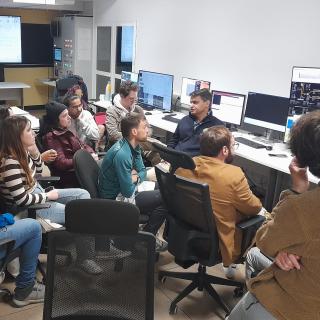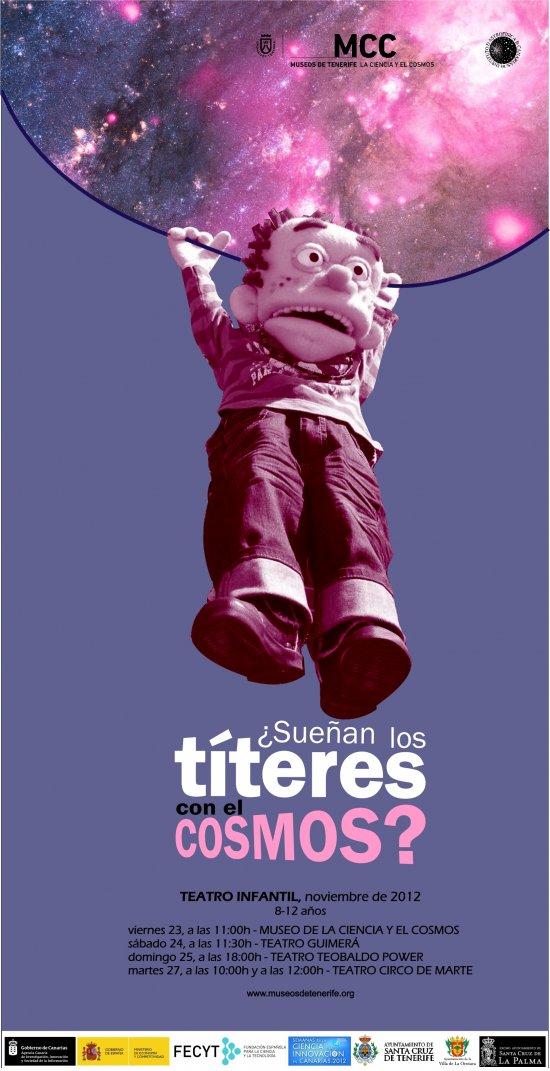It may interest you
-
 The EU-funded EDUCADO project (Exploring the Deep Universe by Computational Analysis of Data from Observations) at the Instituto de Astrofísica de Canarias (IAC) is organising a two-night astronomical observation school providing hands-on research training for early-stage researchers in astronomy and computer science. The program will convene 15 doctoral candidates from across Europe for an immersive, interdisciplinary learning experience. Attendees will engage in night time astronomical observations utilizing state-of-the-art telescopic instrumentation, guided data analysis workshops, andAdvertised on
The EU-funded EDUCADO project (Exploring the Deep Universe by Computational Analysis of Data from Observations) at the Instituto de Astrofísica de Canarias (IAC) is organising a two-night astronomical observation school providing hands-on research training for early-stage researchers in astronomy and computer science. The program will convene 15 doctoral candidates from across Europe for an immersive, interdisciplinary learning experience. Attendees will engage in night time astronomical observations utilizing state-of-the-art telescopic instrumentation, guided data analysis workshops, andAdvertised on -
 This is the third “mini-Moon” with lunar-like material identified as part of the Arjuna asteroid belt, where objects follow similar orbits around the Sun to that of the Earth-Moon system. IAC, February 6, 2025. – Near-Earth asteroid 2024 PT5 orbits around the Sun following a trajectory very similar to that of the Earth-Moon system, and during two months of 2024, it accompained our Earth on its journey. This asteroid has material on its surface that was originated in the Moon, as it has been proved by a research led by the Insituto de Astrofísica de Canarias (IAC) and the UniversidadAdvertised on
This is the third “mini-Moon” with lunar-like material identified as part of the Arjuna asteroid belt, where objects follow similar orbits around the Sun to that of the Earth-Moon system. IAC, February 6, 2025. – Near-Earth asteroid 2024 PT5 orbits around the Sun following a trajectory very similar to that of the Earth-Moon system, and during two months of 2024, it accompained our Earth on its journey. This asteroid has material on its surface that was originated in the Moon, as it has been proved by a research led by the Insituto de Astrofísica de Canarias (IAC) and the UniversidadAdvertised on -
 El Instituto de Astrofísica de Canarias (IAC) y el Área STEAM para el Fomento de las Vocaciones Científicas y la Creatividad de la Consejería de Educación, Formación Profesional, Actividad Física y Deportes del Gobierno de Canarias anuncian el lanzamiento de un ambicioso proyecto de innovación educativa, Ciencia con PETeR: Investigando el Sistema Solar y los exoplanetas con telescopios robóticos. Esta iniciativa, dirigida a centros de Educación Secundaria Obligatoria y Bachillerato del archipiélago, convertirá a las aulas canarias en auténticos centros de investigación astronómica durante elAdvertised on
El Instituto de Astrofísica de Canarias (IAC) y el Área STEAM para el Fomento de las Vocaciones Científicas y la Creatividad de la Consejería de Educación, Formación Profesional, Actividad Física y Deportes del Gobierno de Canarias anuncian el lanzamiento de un ambicioso proyecto de innovación educativa, Ciencia con PETeR: Investigando el Sistema Solar y los exoplanetas con telescopios robóticos. Esta iniciativa, dirigida a centros de Educación Secundaria Obligatoria y Bachillerato del archipiélago, convertirá a las aulas canarias en auténticos centros de investigación astronómica durante elAdvertised on
